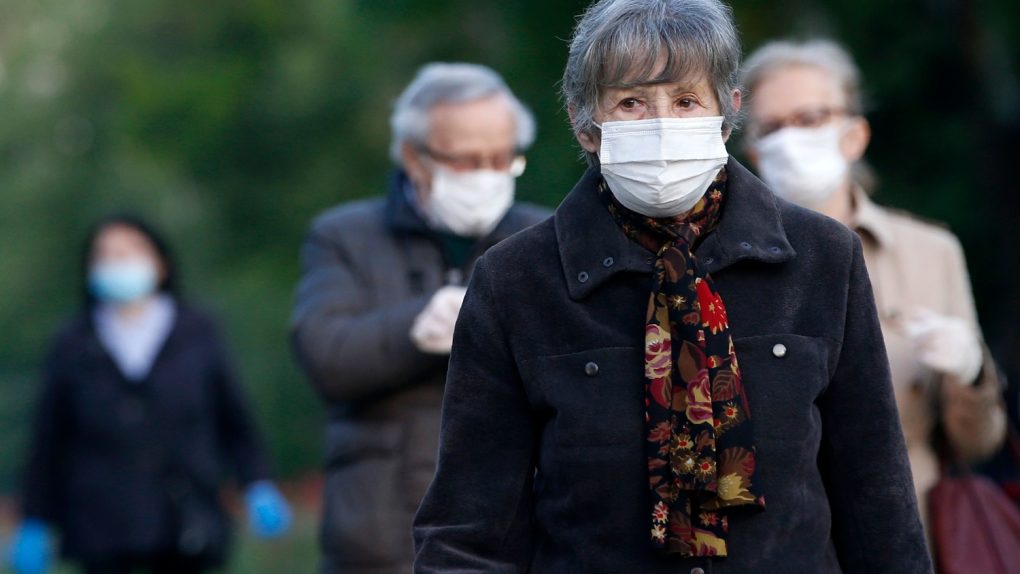- An increasing number of reports have observed strange symptoms in patients infected with the novel coronavirus, including blood clotting.
- Clotting can lead to strokes and heart attacks, and a new study says that blood-thinning drugs may reduce the risk of death in patients experiencing severe respiratory problems.
- More research is required, but these early conclusions seem to be promising and could lead to new life-saving therapies for COVID-19 patients.
- Visit BGR’s homepage for more stories.
After more than four months fighting the novel coronavirus, the world has gathered plenty of data about the pathogen which is already being used to improve treatments and develop new therapies that can hopefully reduce the lethality of the virus or even eradicate it. And while finding a vaccine is the priority, other drugs could speed up recovery and prevent the onset of life-threatening complications, and remdesivir may be one of them.
The medicine was created for Ebola and then adapted for SARS-CoV-2 therapy. Remdesivir can speed up recovery significantly, a major US study showed, but it doesn’t reduce mortality. Dr. Anthony Fauci said when describing the potential of remdesivir that future studies will be required in which the drug is combined with something else to deliver better results. It’s too early to say what other drugs could work in tandem with remdesivir, but some researchers think they’ve found a way to reduce the risk of death in severe COVID-19 cases that involves the use of more common drugs.
An increasing number of reports and studies have shown an unusual condition in COVID-19 patients: Blood clotting. The blood coagulates inside veins or arteries, blocking the blood vessels. This could lead to neurological symptoms, including strokes in younger patients. They could block heart vessels, which can lead to heart attacks. And blood clots may even interfere with the exchange of gases between the blood and the lung cells.
Reports around the same time said that some doctors were considering using blood thinners on some of their COVID-19 patients. Researchers have recently penned a study that explains the new blood clotting disorder that can appear in COVID-19 patients. Pulmonary intravascular coagulopathy (PIC) is what they called it.
“In addition to pneumonia affecting the small air sacs within the lungs, we are also finding hundreds of small blood clots throughout the lungs. This scenario is not seen with other types of lung infection, and explains why blood oxygen levels fall dramatically in severe COVID-19 infection,” Director of the Irish Centre for Vascular Biology, RCSI, Professor James O’Donnell said at the time. “Further studies will be required to investigate whether different blood-thinning treatments may have a role in selected high-risk patients in order to reduce the risk of clot formation.”
Researchers from Italy who have performed autopsies on COVID-19 victims said the blood clotting issue might be more significant than initially believed, and could be responsible for respiratory problems.
This brings us to a brand new study from Mount Sinai Health System in New York that says giving blood thinners to patients with severe COVID-19 cases can be extremely helpful, and could help reduce the mortality rate of people who have already developed respiratory complications that require the use of ventilators.
The study was published in the Journal of the American College of Cardiology (via Stat) in pre-peer-review form and needs further verification. However, the findings are still impressive.
The researchers looked at more than 2,700 patients hospitalized for COVID-19 and found that the percentage of patients who died while not on a ventilator was about the same regardless of whether they received a blood-thinning drug. But the anticoagulants helped patients survive for a week longer than those who did not receive them. That’s 21 days for people who got blood thinners compared to 14 days for the others.
Moreover, the sicker patients who were on ventilators in the ICU and received anticoagulants were more likely to survive. 63% of those who received the drugs survived compared to 29% who did not get them.
The patients were assigned randomly to the blood-thinning therapy, but the study notes that it can’t rule out other explanations for why those patients got better. Anticoagulants can increase the risk of bleeding in some patients, but the study found no significant risk for those who were on the therapy.
More research is required to determine how blood-thinning drugs should be applied to patients experiencing severe cases of COVID-19. Doctors at Mount Sinai had given blood thinners to some patients before the study came out, and they changed their approach in light of the new findings. “We developed a new policy once we got these results,” co-author and Mount Sinai physician-in-chief Valentin Fuster told Stat. “And that is to increase the dose of anticoagulants to the patients with COVID-19.”
Some people suffer from preexisting conditions that may require the use of anticoagulants to mitigate the risk of clotting. These patients were put on blood thinners when they were admitted. But the higher doses were given in the ICU.
Mount Sinai will conduct a second observational study that will include 5,000 COVID-19 patients taking blood thinners. A randomized clinical trial will follow. Another therapy that might work in some patients is clot-busting drugs, Mount Sinai neurosurgeon J. Mocco told Stat while addressing previous work that detailed the increased number of strokes in younger people.
If everything goes well, and future studies prove that blood-thinning drugs can reduce clotting and prevent COVID-19 complications that can lead to death, we could see anticoagulants become standard therapy for the disease.








